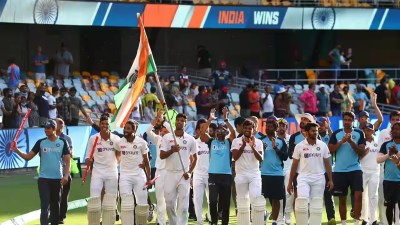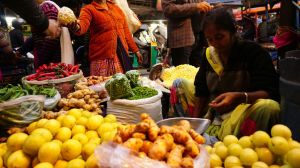Back to the future
In democracy8217;s most persuasive definition, every election marks a new beginning. It is the time when the people take stock of the polit...

In democracy8217;s most persuasive definition, every election marks a new beginning. It is the time when the people take stock of the political menu and make their choice afresh, in a manner that is free and fair. As Bihar heads towards the second assembly election within the year 8212; another record of sorts to be tipped into the state8217;s burgeoning kitty of dubious distinctions 8212; democracy8217;s promise returns to taunt: will there be a new start in Bihar or just a return to the older political stalemate? Can electoral democracy find a way of shaking the state free of the habits of inertia, and its accumulated paralyses? The last verdict recorded stirrings of change; after 15 years of uninterrupted rule, the RJD-led front failed to breast the tape. Will this election see a more decisive mandate in Bihar?
As RJD and the others plunge into the campaign, the political arithmetic seems as impossible as it did the last time. The Congress seems certainly clearer now 8212; it tails the RJD more unabashedly 8212; but that gain in clarity is all but crossed out by the continued mincing by Ram Vilas Paswan8217;s LJP. Paswan continues to abuse the RJD and court the Congress, and what is worse for the leading secular front on the scene, he threatens to keep a rival combine, also called secular, afloat. Also, the JDU-BJP combine, which put up a remarkably disciplined fight last time, is much more strained this time 8212; be it on account of the RSS-Nitish spat or the BJP8217;s unfinished tug of war with the RSS. A tidier battle between two neat fronts may still not take materialise in Bihar.
Balancing the political sums is only the first thing to be done, however, if this election is not to return us to the place where we held the last. Once the players have arranged themselves on the field, they must spell out what it is they fight each other for. Slogans of 8216;8216;social justice8217;8217; and 8216;8216;communal harmony8217;8217; have lost their meaning, they8217;ve become such stale cliches. Parties would do well to confine themselves to 8216;8216;development8217;8217; this time. And it will be the job of the rest of us, in the media and in civil society, to keep asking them what they mean.
- 01
- 02
- 03
- 04
- 05































